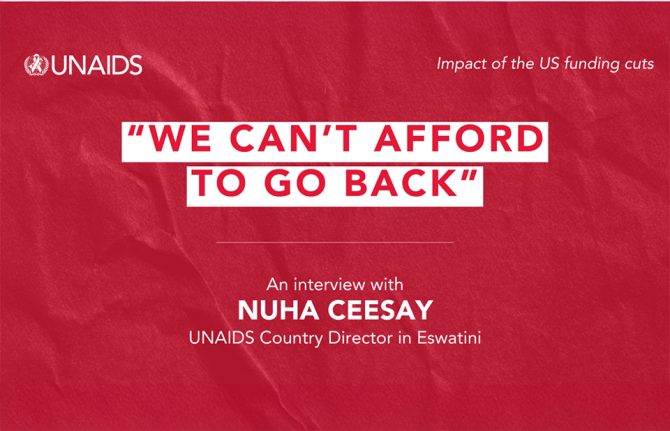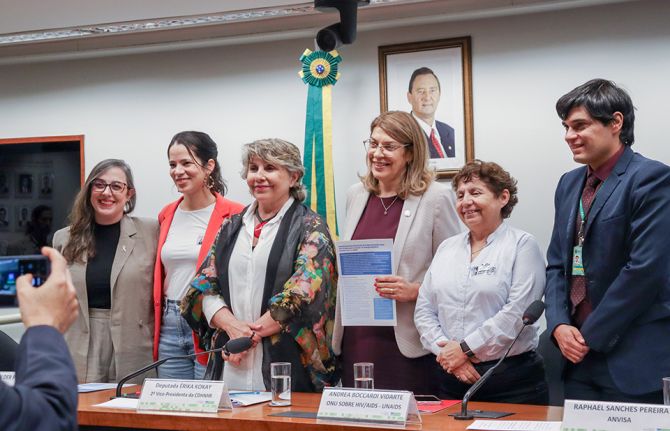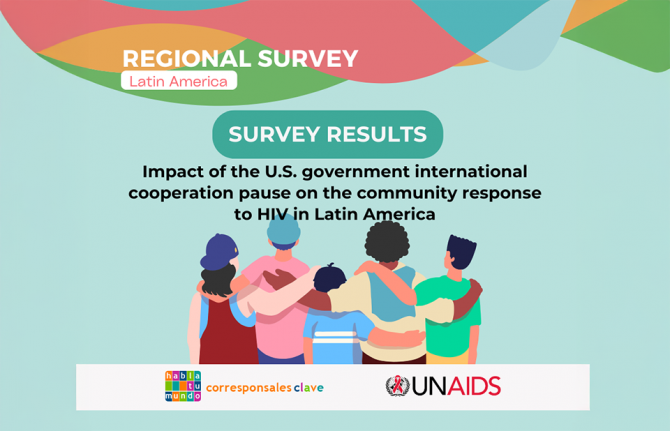

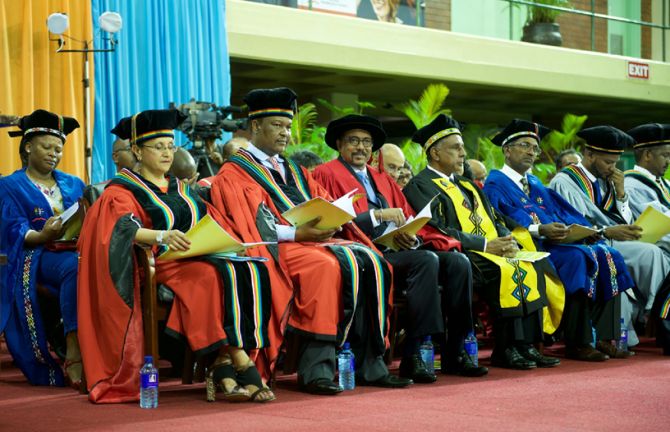
Update
University of KwaZulu-Natal awards honorary degree to UNAIDS Executive Director
18 April 2016
18 April 2016 18 April 2016The University of Kwazulu-Natal, in Durban, South Africa, has conferred an honorary degree on the UNAIDS Executive Director, Michel Sidibé, to recognize his contribution to the global response to HIV.
Mr Sidibé was awarded a Doctor of Administration from the university’s College of Law and Management Studies during a graduation ceremony for students. The university said Mr Sidibé’s leadership and advocacy had led to an unprecedented global commitment to the AIDS response.
In his address to the students, Mr Sidibé urged them to have passion for everything they do, to show compassion for others at all times and to share their knowledge generously.
The University of KwaZulu-Natal is renowned for its excellence in scholarship, innovation and community engagement. The university is home to the Centre for the AIDS Programme of Research in South Africa, the UNAIDS Collaborating Centre for HIV Research and Policy.
Quotes
“Mr Sidibé’s global advocacy has firmly secured the response to HIV at the top of the political agenda in South Africa. He has played a key role in supporting South Africa’s HIV plan and programmes through his personal advocacy and guidance.”
“This is my first honorary doctorate from an African university. I am exceptionally delighted to be honoured in this way by the University of KwaZulu-Natal.”
Region/country

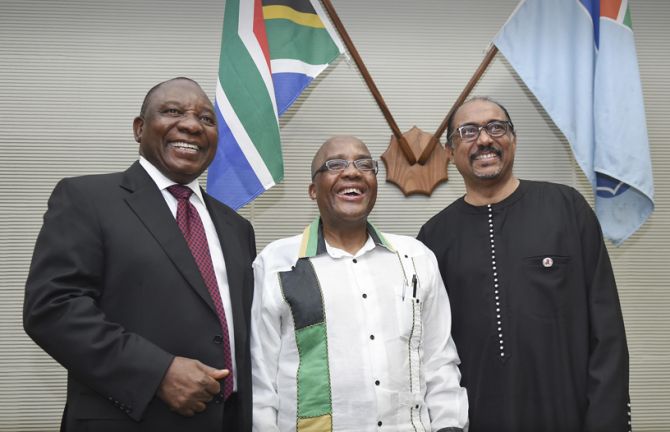
Update
South Africa at the forefront of the global AIDS response
15 April 2016
15 April 2016 15 April 2016The UNAIDS Executive Director, Michel Sidibé, has met South Africa’s Deputy President, Cyril Ramaphosa, and the Minister of Health, Aaron Motsoaledi in Pretoria, South Africa, to discuss the country’s ongoing response to HIV.
South Africa is the country with the highest number of people living with HIV in the world: 6.5 million people. However, the country continues to scale up treatment and prevention services as part of the UNAIDS Fast-Track approach to ending the AIDS epidemic by 2030, and is showing results—around 340 000 people were newly infected with HIV in 2014, down from 600 000 in 2000.
This year promises to be particularly significant for South Africa’s AIDS response as the country will host the 21st International AIDS Conference in Durban in July. Mr Ramaphosa described it is a key opportunity to showcase the turnaround in the South African epidemic since the International AIDS Conference was last hosted in Durban, in 2000.
Mr Ramaphosa also stated that South Africa will send a delegation to attend the United Nations General Assembly High-Level Meeting on Ending AIDS in New York, United States of America, to be held in June.
Quotes
“South Africa has invested heavily in its AIDS response in the last six years. We are excited to show the results of this investment to the rest of the world during the United Nations High Level Meeting on Ending AIDS, in New York, United States of America, and the 21st International AIDS Conference, in Durban, South Africa.”
“South Africa continues to achieve impressive results in its AIDS response. I am delighted that it will play a leading role in two major milestones in the global AIDS response: the United Nations General Assembly High-Level Meeting on Ending AIDS in New York, United States of America, and the 21st International AIDS Conference in Durban, South Africa.”
“We must ensure that HIV remains at the centre of the global health development agenda. Health cuts across almost all of the SDGs and without addressing health we will not achieve the ambitious development goals set for 2030.”
Region/country

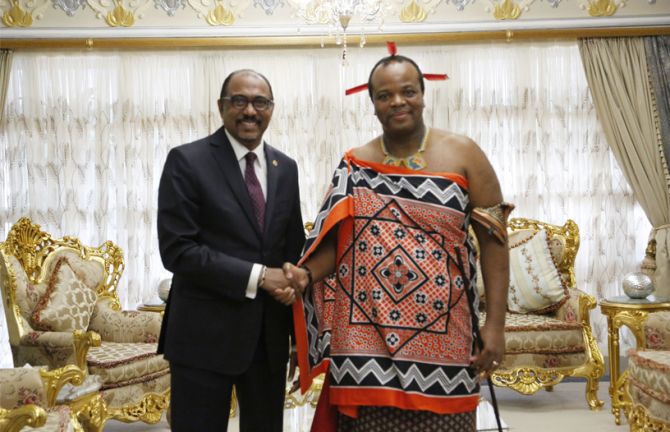
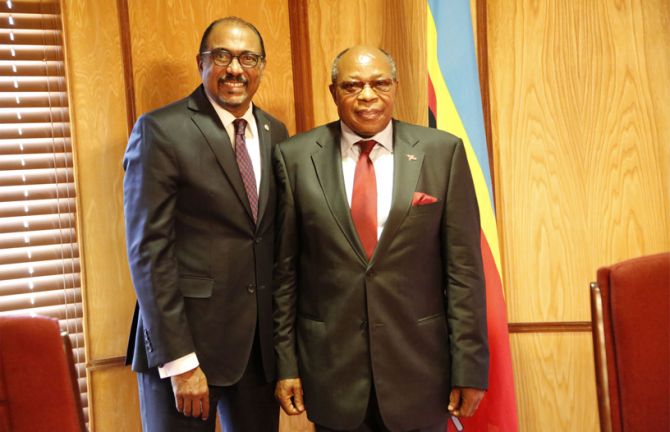
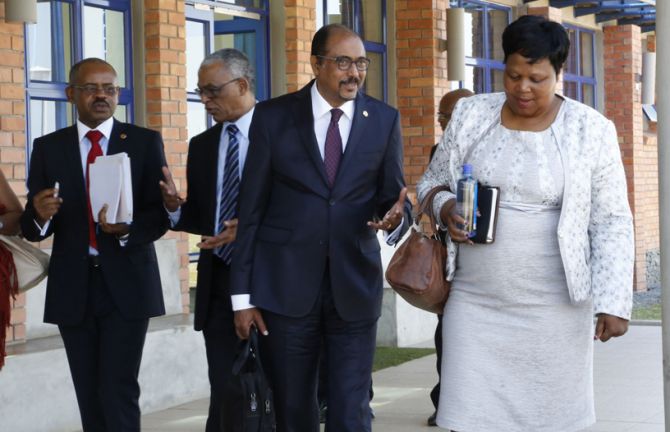
Update
Ending the AIDS epidemic in Swaziland
12 April 2016
12 April 2016 12 April 2016During a visit to Swaziland, UNAIDS Executive Director Michel Sidibé met His Majesty King Mswati III and discussed the country’s ongoing response to the AIDS epidemic. Mr Sidibé commended His Majesty for his personal leadership and commitment to Fast-Track the end of the AIDS epidemic.
Mr Sidibé praised the country for increasing domestic resources for the AIDS response through the Swaziland HIV Investment Case. As investment is scaled up, more people are accessing antiretroviral therapy, with coverage estimated at 60% of adults and 43% of children living with HIV.
Swaziland has also successfully expanded services to prevent mother-to-child transmission of HIV, with new child HIV infections reduced by 63% between 2009 and 2014. The country has achieved the goal of 90% of pregnant women living with HIV receiving antiretroviral medicines. This should further reduce the mother-to-child transmission of HIV rate, which stands at 1% at six weeks of age and 8% at the end of breastfeeding.
During his visit, Mr Sidibé also met the acting Prime Minister, Paul Dlamini, and the Minister of Health, Sibongile Ndlela Simelane. He underlined the importance of leaving no one behind in the AIDS response, including women, girls and key populations, and stressed the importance of prevention in the ongoing response to the epidemic.
During the courtesy call to the King, Mr Sidibé invited His Majesty to attend the United Nations General Assembly High-Level Meeting on Ending AIDS, which will take place from 8 to 10 June in New York, United States of America.
Quotes
“I wish to renew our commitment to increase the allocation of domestic resources to the AIDS response, with emphasis on investing in HIV prevention programmes so that our dream of a nation with zero new HIV infections is met and realized.”
“I congratulate you for your personal commitment and leadership on HIV and the bold decisions you have made on ending AIDS in Swaziland.”
“Swaziland is committed to ending AIDS by the year 2022 in light of His Majesty the King’s vision.”
“Fast Tracking ending AIDS will require reaching the hard-to-reach through decentralization of services to where people are using the Gogo centres in every chiefdom, ensuring that no one is left behind.”
Region/country


Update
UNAIDS and Globo launch new Internet web series on serodiscordant couples
12 April 2016
12 April 2016 12 April 2016UNAIDS and Globo have partnered in Brazil to launch an original series for the Internet called Eu Só Quero Amar (All I Want is Love). The web series focuses on Henrique and Camila, a young serodiscordant couple who decide to fight for their relationship despite the obstacles in their way, including stigma and discrimination.
The web series—a spin-off of the TV series Malhação: Seu Lugar no Mundo (Malhação: Your Place in the World), which airs every weekday to an estimated daily audience of 20 million people—is comprised of five episodes, to be released each Saturday during April.
Mixing fiction and documentary elements, the series will tell the stories of young serodiscordant couples, in which one member is living with HIV and the other is not. The aim of the web series is to reach out to a young audience and deepen the debate on social life and relationships among serodiscordant couples, showcasing not only the social challenges they face but also the possibilities for people who want to enjoy a healthy and well-informed sexuality with their HIV-positive partners.
As part of the partnership with Globo, UNAIDS is providing advice for the AIDS-related scenes, supporting the author, screenwriters and producers in fine-tuning language and terminology, and contributing ideas for new topics, scenes and real stories that can add value to dialogues and characters.
Globo is the largest media group in Brazil and owner of one of the world’s most influent TV channels in terms of audience. More than 91 million people, just under half the country’s population, tune in to it every day. In recent years, Globo has started to invest in its Internet branch, Gshow, through which original web series and spin-offs of its soap operas are helping the cannel to strengthen its outreach.
Quotes
“Our strategy is to mobilize the country on issues of social relevance. Therefore, the partnership with UNAIDS is essential for us to send this message of respect, tolerance, enlightenment and harmony in the interaction between serodiscordant couples. And also to reach the greatest audience possible and contribute to positive behavioural changes.”
"For the first time in the history of Brazilian television we are going beyond HIV prevention, testing and treatment. We are also talking about sexuality, stigma and discrimination, and more importantly we are talking directly to a young audience, which is the most affected in the country nowadays."
Related

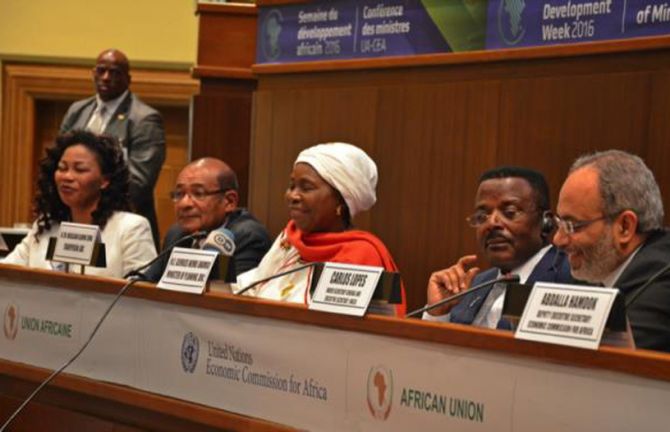
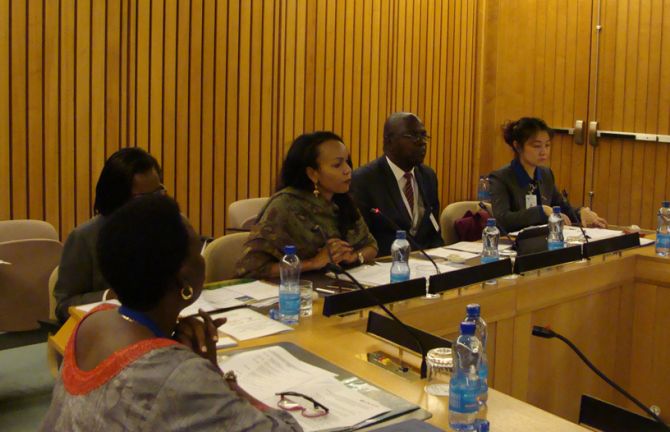
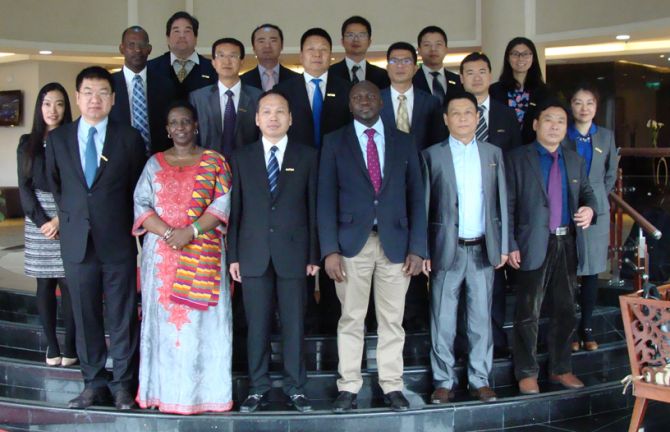
Update
Structural transformation needed in Africa to implement Agenda 2063 and the SDGs
12 April 2016
12 April 2016 12 April 2016The Ninth Joint Annual Meetings of the African Union Specialized Technical Committee on Finance, Monetary Affairs, Economic Planning and Integration and the Economic Commission for Africa Conference of African Ministers of Finance, Planning and Economic Development concluded on 5 April with a shared conviction that the continent requires resources for health care, education and other issues aimed at improving the lives of African people.
The participants recognized that Africa has made considerable progress towards social outcomes, with poverty levels dropping in the various subregions. However, further structural transformation and capacity reinforcement should be achieved to implement Agenda 2063 and the Sustainable Development Goals and, in turn, address problems such as migration, youth employment, the empowerment of women and integration.
During a side event to the meetings sponsored by UNAIDS, the African Union Commission and the Economic Commission for Africa, the participants discussed the potential of the pharmaceutical sector in Africa’s socioeconomic transformation.
The African Union Commissioner for Trade and Industry, Fatima Haram Acyl, said that the pharmaceutical industry in Africa accounted for only 2% of the world’s pharmaceutical market and underscored the importance of mobilizing resources to finance a stronger, less dependent and more reliable local pharmaceutical industry in Africa. The participants highlighted the importance of creating an enabling environment for African businesses to access expertise and technology and strengthen the regulations governing markets and the pharmaceutical industry.
The participants agreed with the need to Fast-Track the implementation of the Pharmaceutical Manufacturing Plan for Africa, which will promote the achievement of universal health coverage and will contribute to the economic development of the pharmaceutical and other related industries.
Quotes
“At the country and regional levels we are beginning to see initiatives that promote manufacturing, including in pharmaceuticals and commodities. We need to believe in ourselves, in our capacities and the capacities of our people.”
“Thanks to these initiatives, the pharmaceutical industry in Africa should experience an unprecedented boom in the years ahead.”
“Regional integration must also stimulate integration of local pharmaceutical production and markets if local production, especially with regard to antiretroviral therapy, is to be viable and sustainable. This is good for the investors in the pharmaceutical industry and the necessary market.”

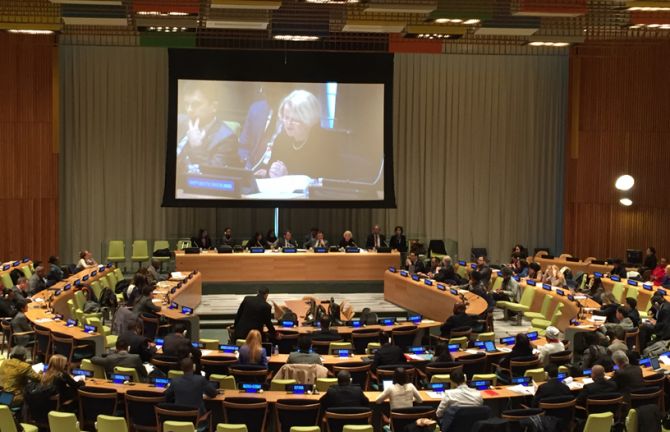
Update
Bold Political Declaration needed from June High-Level Meeting on Ending AIDS
12 April 2016
12 April 2016 12 April 2016On 8 April, the President of the United Nations General Assembly, Mogens Lykketoft, convened an informal session to brief United Nations Member States on the 2016 United Nations General Assembly High-Level Meeting on Ending AIDS, which will take place in New York, United States of America, from 8 to 10 June 2016.
During the session, the Deputy Executive Director of UNAIDS, Jan Beagle, presented the United Nations Secretary-General’s report, On the Fast-Track to end the AIDS epidemic. The report highlights that ending the AIDS epidemic is possible by 2030, but only if a Fast-Track approach is taken over the next five years. United Nations Member States welcomed the report and expressed strong support for efforts to Fast-Track the response and end the AIDS epidemic as part of the Sustainable Development Goals.
The session was presided over by the President of the General Assembly and the two co-facilitators of the High-Level Meeting on Ending AIDS—Patricia Mwaba Kasese-Bota, Permanent Representative of Zambia to the United Nations, and Jürg Lauber, Permanent Representative of Switzerland to the United Nations.
Representatives of 115 Member States attended the session, many at ambassadorial level. The participants highlighted the need to adopt a bold Political Declaration on Ending AIDS, stating that it would be essential to enabling a Fast-Track approach.
The President of the General Assembly also briefed Member States on the Informal Interactive Civil Society Hearing, which took place on 6 April, and called on Member States to extend full support to civil society participation at the High-Level Meeting on Ending AIDS. He also stressed that the meeting provided a critical opportunity to end the AIDS epidemic in the context of the 2030 Agenda for Sustainable Development.
Dr Kasese-Bota closed the meeting by noting that she and her fellow co-facilitator are extremely encouraged by Member States’ expressions of support. Feedback from this meeting and from the civil society hearing will be used to inform the zero draft of the United Nations Political Declaration on Ending AIDS.
Quotes
“The upcoming High-Level Meeting on Ending AIDS is a critical opportunity to set targets for an integrated response to end AIDS and advance progress towards the Sustainable Development Goals.”
Resources
Related

Update
Zero draft 2016 Political Declaration released ahead of High-Level Meeting on Ending AIDS
19 April 2016
19 April 2016 19 April 2016The co-facilitators of the 2016 United Nations General Assembly High-Level Meeting on Ending AIDS, Patricia Mwaba Kasese-Bota, Permanent Representative of Zambia to the United Nations, and Jürg Lauber, Permanent Representative of Switzerland to the United Nations, have released the zero draft of the 2016 Political Declaration: on the Fast-Track to end AIDS in the age of sustainable development.
The zero draft reflects on the achievements made so far in the response to AIDS. It also sets out a clear agenda to Fast-Track the response by 2020 and put the world on track to end the AIDS epidemic as a public health threat by 2030.
The zero draft was presented to United Nations Member States on 18 April. The co-facilitators will begin open, transparent and inclusive informal consultations on the draft declaration on 25 April. Member States will negotiate and finalize the declaration over the next few weeks, which will be then be presented for adoption at the High-Level Meeting on Ending AIDS on 8 June. The co-facilitators will also hold an informal meeting with civil society, the private sector and other relevant stakeholders on 26 April, which will be webcast live at http://webtv.un.org/live/.
The United Nations General Assembly High-Level Meeting on Ending AIDS will take place in New York, United States of America, from 8 to 10 June. It will bring together high-level representatives of United Nations Member States, people living with HIV, civil society, the private sector and other partners to focus the world’s attention on the importance of a Fast-Track approach to the AIDS response over the next five years. The Political Declaration adopted at the meeting will guide and monitor the AIDS response towards ending the AIDS epidemic by 2030.
Feedback and comments on the zero draft can be made by email to the International Council of AIDS Service Organizations at HLM2016@icaso.org, by no later than Friday, 22 April.
High-Level Meeting on Ending AIDS
Related


Update
Alejandra Oraa appointed as UNAIDS Regional Goodwill Ambassador for Latin America and the Caribbean
08 April 2016
08 April 2016 08 April 2016UNAIDS has appointed CNN news anchor Alejandra Oraa as a UNAIDS Regional Goodwill Ambassador for Latin America and the Caribbean. The announcement was made on the occasion of World Health Day 2016.
In her new role, Ms Oraa will work towards promoting an integral approach to HIV based on human rights, as part of the health agenda for women and youth, and will raise public awareness and understanding of gender inequality.
During the coming year, Ms Oraa will visit several countries in the region, where she will have the opportunity to hear about best practices and lessons learned from the HIV response, especially with regard to women and girls.
Alejandra Oraa, born in Vargas, Bolivarian Republic of Venezuela, is anchor of Café CNN, a morning news programme on CNN in Spanish broadcast from Atlanta, United States of America, and Destinos CNN, a weekly TV programme on the world’s most popular tourist destinations.
Quotes
“I have always believed in the power of changing our reality. And this need for change motivates me to use my vocation as a journalist to advocate for a just and equal world.”
“With her charisma and dedication, Alejandra will help to strengthen the HIV response in Latin America and the Caribbean with the aim of ending the AIDS epidemic by 2030.”
Region/country

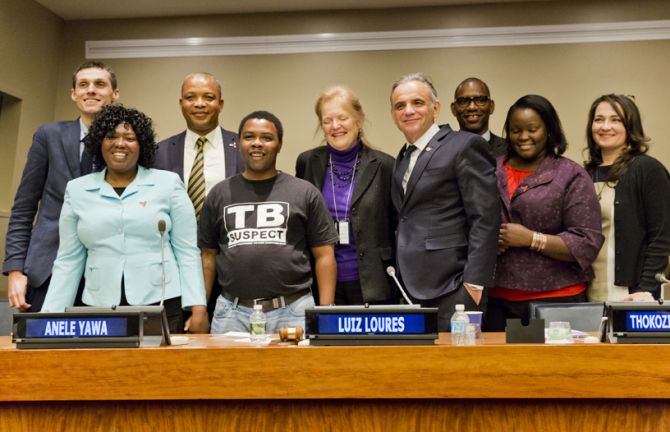
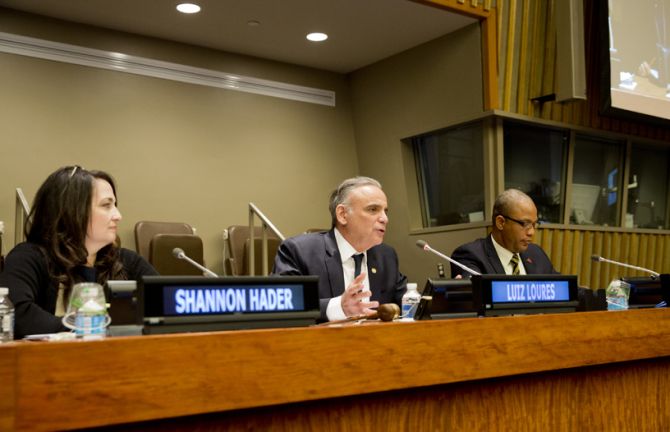
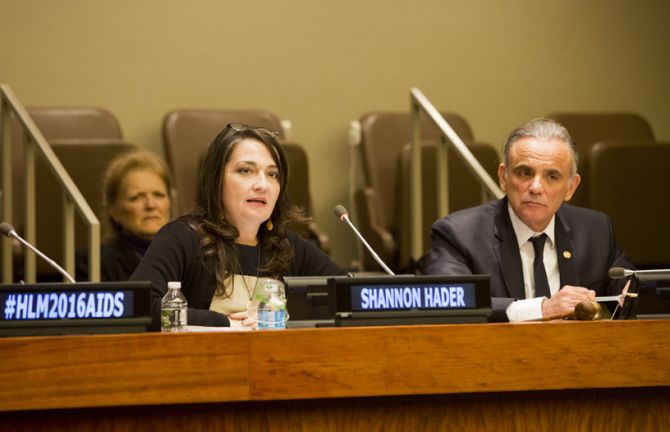
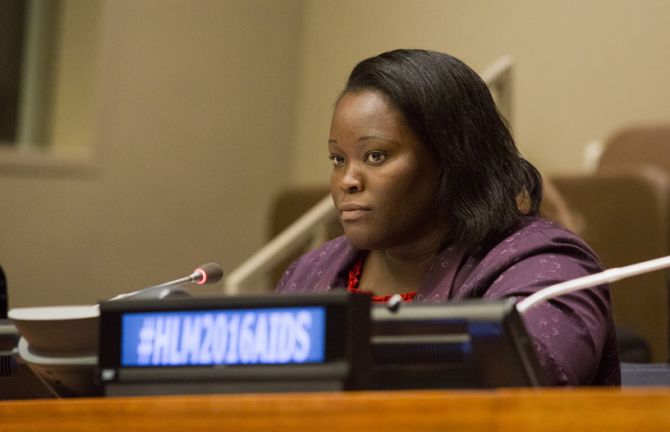
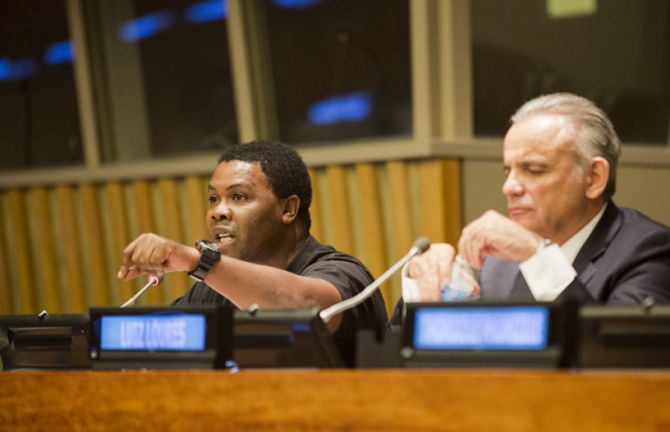
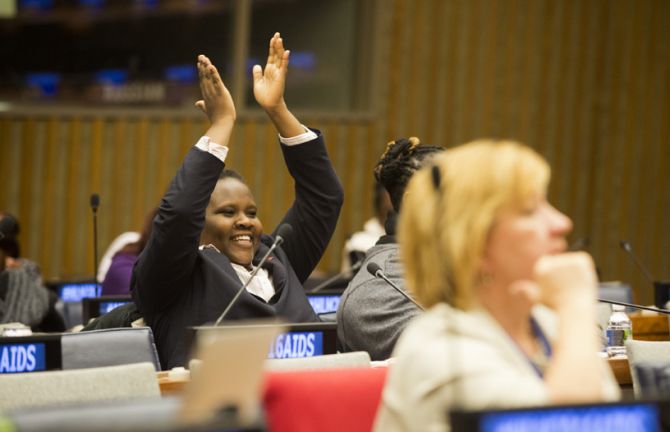
Update
Uniting communities to end the epidemics of AIDS and tuberculosis
07 April 2016
07 April 2016 07 April 2016UNAIDS and the Stop TB Partnership have hosted an interactive discussion in New York, United States of America, with representatives of civil society organizations and other stakeholders involved in the response to HIV and tuberculosis (TB). The discussion took place during the Informal Interactive Civil Society Hearing held by the President of the United Nations General Assembly in preparation for the United Nations General Assembly High-Level Meeting on Ending Aids, which will take place in New York from 8 to 10 June.
During the discussion, the participants described the challenges posed by the epidemics and explored ideas to better integrate the responses. UNAIDS and the Stop TB Partnership have both set ambitious five-year targets to respond to the epidemics and to set the world on course to end them as part of the Sustainable Development Goals.
The UNAIDS 2016–2021 Strategy has established a set of three people-centred goals and 10 measurable targets that must be met by 2020 to end the AIDS epidemic by 2030, including achieving the 90–90–90 treatment target for 2020, whereby 90% of people living with HIV know their HIV status, 90% of people who know their HIV-positive status are accessing antiretroviral treatment and 90% of people on treatment have suppressed viral loads. Other targets include reducing new HIV infections to fewer than 500 000 per year by 2020 and achieving zero HIV-related discrimination.
The Global Plan to End TB is the Stop TB Partnership’s five-year plan to accelerate the response to TB, and includes a projected investment scale-up from 2016 to 2020 to reach a 90–(90)–90 target. This includes reaching at least 90% of all people diagnosed with TB and enabling them to have access to appropriate therapy as required, reaching at least 90% of key populations living with tuberculosis and achieving 90% treatment success for all people diagnosed with tuberculosis.
Prevention of HIV and tuberculosis will also play a key part in ending both epidemics.
Tuberculosis is a major cause of mortality among people living with HIV and is currently responsible for one in three AIDS-related deaths.
Quotes
“There is no end to AIDS if we don’t solve the challenge of coinfection with tuberculosis. There is no option here for a silo approach.”
“We are standing at a global crossroads for HIV and tuberculosis. We know we will never end tuberculosis by 2030 unless we end AIDS by 2030. Likewise, we have no chance to end AIDS by 2030 if we don’t drastically change our response to tuberculosis.”
“I am from Ukraine, which has the fifth highest burden of multidrug-resistant tuberculosis in the world. The cause of death for 60% of HIV-positive people in Ukraine is tuberculosis. Some of them were my friends.”
“The fact that tuberculosis claimed three lives in my family makes me angry—my father, my mother and my brother. When there is a cure and when it is preventable, people should not be dying. Our approach to this disease is wrong.”
“Tuberculosis and HIV are like a brother and sister. We cannot separate them.”
Related

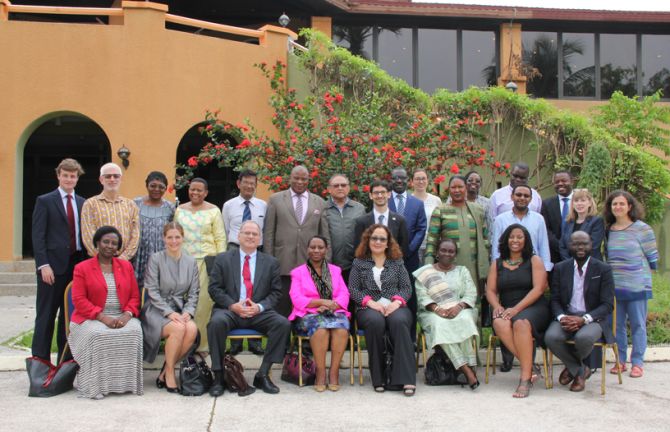
Update
Call to end human rights violations based on sexual orientation and gender identity
07 April 2016
07 April 2016 07 April 2016Human rights experts have called for concerted efforts to end human rights violations based on sexual orientation and gender identity.
A report launched today during the 58th Ordinary Session of the African Commission on Human and Peoples’ Rights, being held in Banjul, Gambia, summarizes a historic dialogue that took place in November 2015 between United Nations human rights experts and representatives of the African Commission on Human and Peoples’ Rights and the Inter-American Commission on Human Rights.
The report, Ending violence and other human rights violations based on sexual orientation and gender identity, highlights grave violations that take place in all regions of the world against lesbian, gay, bisexual, transgender and intersex (LGBTI) people.
The report notes the impact of these abuses on the health of LGBTI people and their access to HIV prevention and care, but also emphasizes positive developments made around the world in protecting the rights of LGBTI people.
In 2014, the African Commission on Human and Peoples’ Rights adopted a resolution calling for the protection of people against violence and other violations on the basis of their real or perceived sexual orientation or gender identity. Commenting on the launch of the report, Pansy Tlakula, Chairperson of the African Commission on Human and Peoples’ Rights, said, “Violence and other human rights violations based on sexual orientation and gender identity constitute universal challenges that require concerted responses by national, regional and United Nations human rights institutions.”
The Inter-American Commission on Human Rights has established a rapporteurship on the rights of LGBTI people. James Cavallaro, President of the Inter-American Commission on Human Rights, highlighted a fundamental element of the work of the Commission. “Bringing the voices of lesbian, gay, bisexual, transgender and intersex people into our work is to challenge the invisibility of the serious human rights violations that they continue to face throughout the Americas and hold States accountable for these violations,” he said.
The United Nations Human Rights Council has passed two resolutions condemning violence and discrimination based on sexual orientation and gender identity. “The dialogue allowed us to share good practices to guide our common struggle to combat impunity and to ensure the protection and realization of the human rights of all individuals, including lesbian, gay, bisexual, transgender and intersex people,” said Christof Heyns, United Nations Special Rapporteur on extrajudicial, summary or arbitrary executions.
The UNAIDS Executive Director, Michel Sidibé, and the United Nations High Commissioner for Human Rights, Zeid Ra’ad Al Hussein, said on the launch of the report, “Ending violence, criminalization, discrimination and other human rights violations against lesbian, gay, bisexual, transgender and intersex people are priorities for our organizations and for the entire United Nations system.”
Civil society organizations have also welcomed the report. “Ongoing collaboration and openness to experience-sharing between regional and international human rights systems reinforces the idea of the universality of human rights, and can only help advance the protection of human rights for everyone, including for LGBTI people,” said Sibongile Ndashe, Executive Director of the Initiative for Strategic Litigation in Africa.




